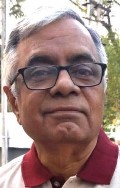What does it mean for project & product professionals?
FEATURED PAPER
By Raju Rao
Chennai, India
Abstract
Recycling or has been in vogue for the last two or three decades to save the environment and various organizations, communities and countries have embraced it as a priority. But, what is being done as ’recycling’? Are there efforts to do Repairs / Refurbish or Reuse / Repurpose before the materials are finally disposed as trash or sent to the landfill? Increasing quantities of waste in the landfill create environmental and health hazards apart from posing a challenge of managing its disposal.
The ‘Fix it’ process is nothing new. This is how we started off during the industrial revolution, but over time, “use and throw” became the norm. Now, we have acute problems with environment and resource utilization, and focus on repairs and maintenance can be a very useful step in the circular economy chain.
In the coming years, the ‘Fix it’ economy can be become substantially large, considering that many of the advanced countries did not give it the needed priority and moved to a product development strategy focusing on quicker obsolescence and near monopolistic facilities for repair or replacement. The developing nations continued with the repair and maintenance processes more easily because of their lack of affordability, purchasing power for high-cost products, and, to some extent, their culture and way of life.
Activities involving Repairing / Refurbishing and Reusing / Re-purposing are all examples of projects. Timeline, risk or uncertainty of success and scoping are variable in individual cases and become candidates where project management can be gainfully deployed. There is also a need to incorporate a mindset of Preparing or Designing to ‘Fixit’ at the stage of product development itself. This activity would be a ‘project’ and product management will be required to consider the marketing and economic aspects.
All about the ‘Fix it’ Economy
As part of a Circular Economy
What is a Circular Economy?
Traditionally, as manufacturers and consumers, we have been practising the method of take – make – use- waste with the final step of sending materials to the landfill. This is an example of a linear economy. Over the years, this has included recycling, in which some portion returns to the manufacturing cycle. However, certain materials still end up in the trash. A further development is the concept of ‘zero waste’, where nothing goes to the landfill and all materials beyond consumption are returned to the operational cycle. This is achieved through repair, reuse, or by refurbishing/re-manufacturing. This is an example of a circular economy…
More…
To read entire paper, click here
How to cite this work: Rao, R. (2024). The “Fixit” Economy: What does it mean for project & product professionals? PM World Journal, Vol. XIII, Issue I, January. Available online at https://pmworldlibrary.net/wp-content/uploads/2024/01/pmwj137-Jan2024-Rao-the-Fixit-economy-featured-paper.pdf
About the Author

Raju N Rao
Chennai, India
![]()
Raju Rao is an author, speaker and social entrepreneur. As the Founder of Xtraplus Learning & Consulting and has been a trainer, consultant and coach for nearly two decades. He often writes for professional journals and is the co-author of two books on project management. At many global conferences and seminars, he has been a speaker. Raju has been involved in the development of various standards in project management. He has worked as a volunteer with PMI and similar organizations for many of their initiatives and projects.
As the Founder of the not-for-profit Forum for Food Recovery, an organization involved in advocacy and education in food waste and recovery management, he is also an Ambassador for GPM Global, which is dedicated to advancing regenerative solutions and practices for sustainable project management. He is a member of the International Society of Sustainability Professionals. Raju is a Distinguished Toastmaster and has been an active member of Toastmasters International. He also dabbles in writing fiction and is interested in cooking, running and listening to music. He can be contacted at pmorg.xtraplus@gmail.com









